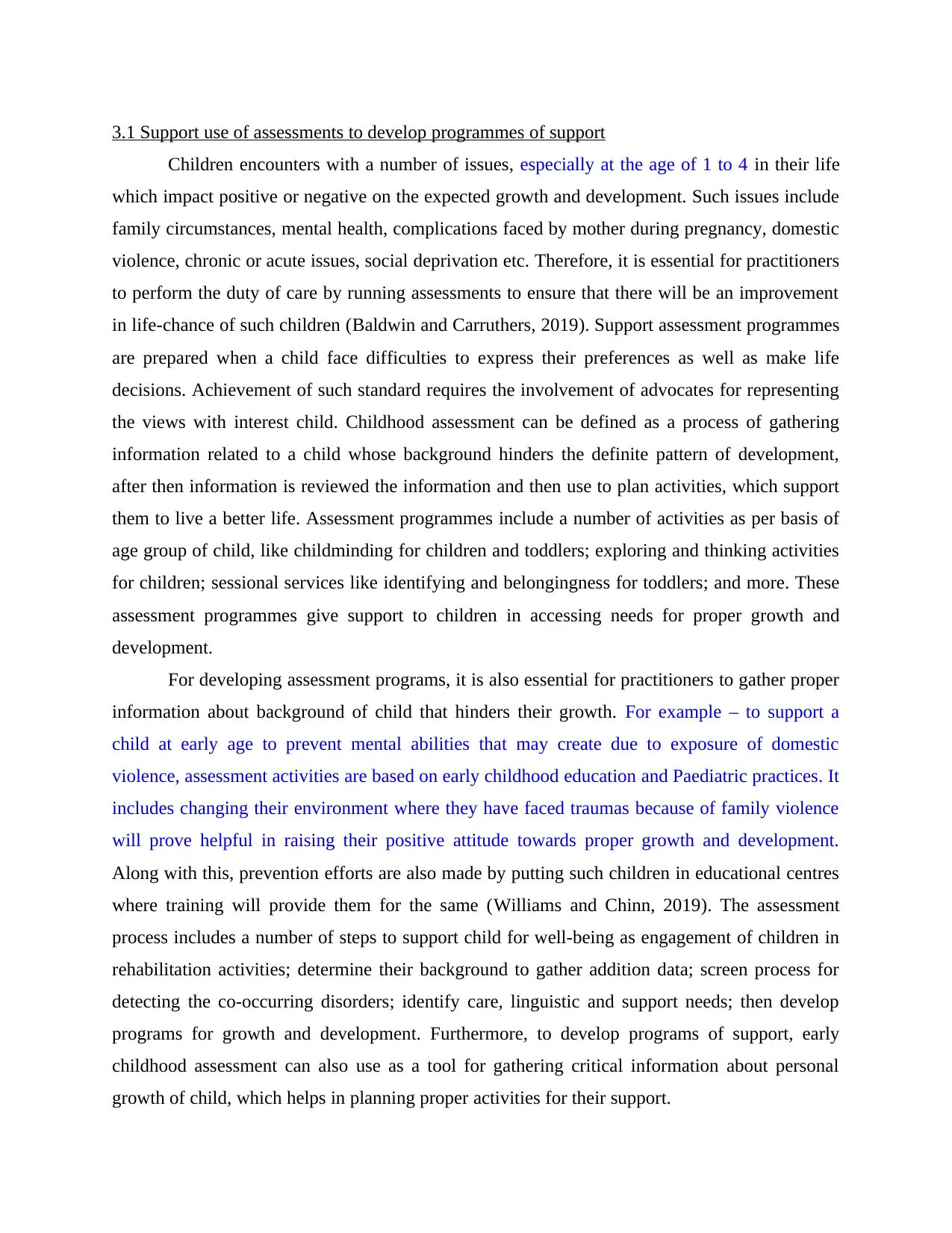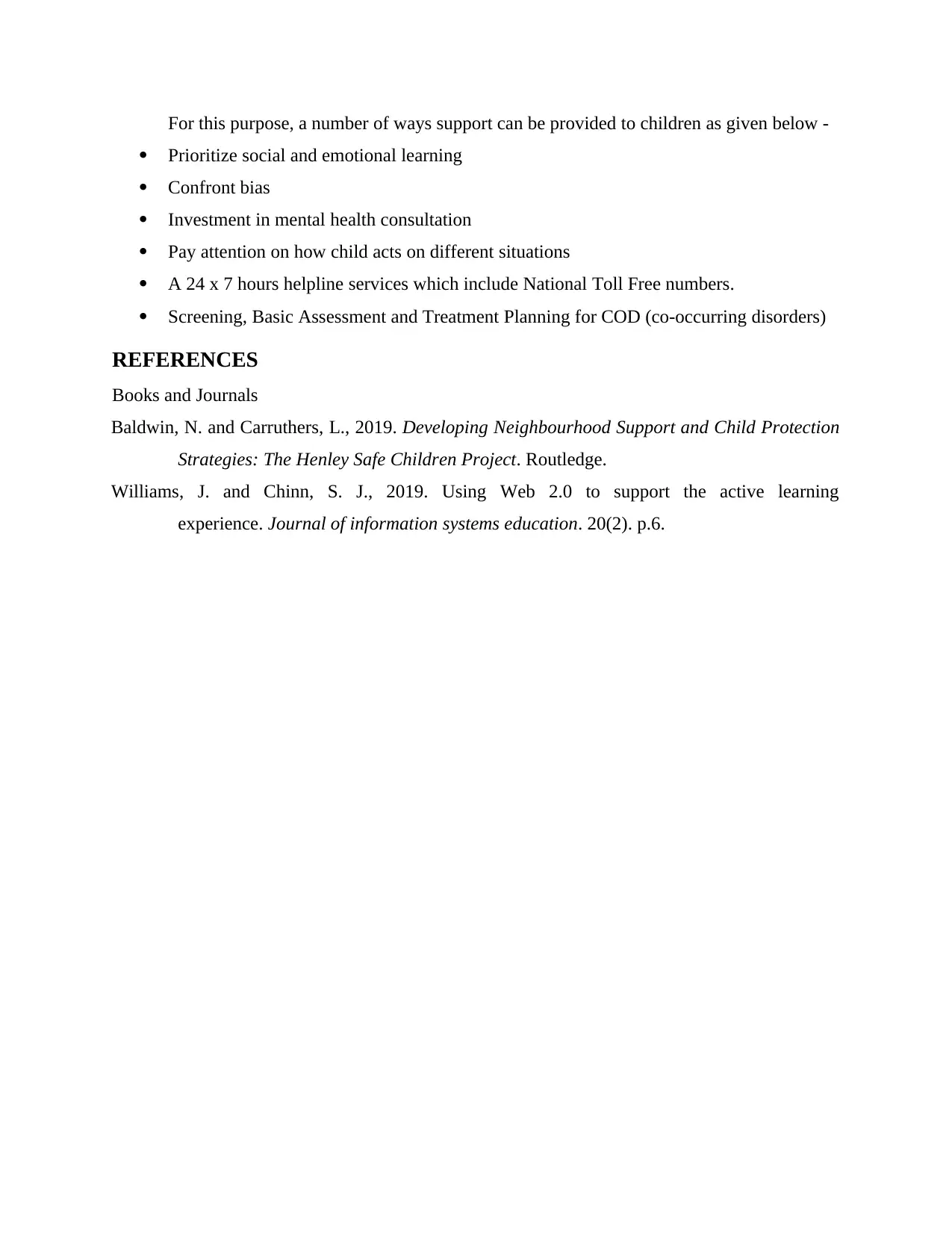Supporting Child Development: Assessment, Programs and Strategies
VerifiedAdded on 2023/01/19
|3
|598
|55
Report
AI Summary
This report delves into the crucial aspects of child development support, emphasizing the significance of assessment programs and intervention strategies. It highlights the various challenges children face, such as family circumstances, mental health issues, and exposure to domestic violence, and how these factors can impact their growth and development. The report underscores the importance of practitioners conducting thorough assessments to identify children's needs and create tailored programs. These programs include activities like childminding, exploratory activities, and sessional services, all designed to support children's well-being and address potential developmental hindrances. The report also discusses the role of early childhood education and paediatric practices in addressing issues like trauma from family violence and provides examples of support mechanisms like social and emotional learning, mental health consultations, and 24/7 helpline services. Furthermore, the report emphasizes the importance of early childhood assessment as a tool for gathering critical information about a child's personal growth, which helps in planning proper activities for their support.
1 out of 3










![[object Object]](/_next/static/media/star-bottom.7253800d.svg)